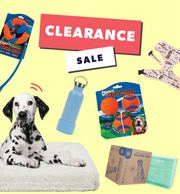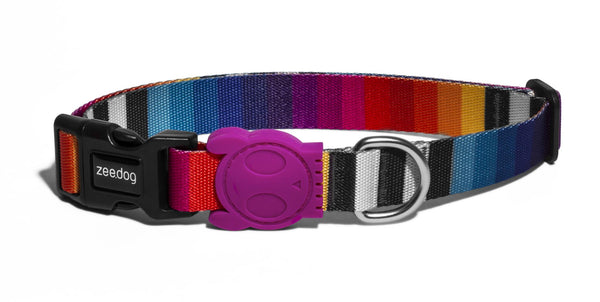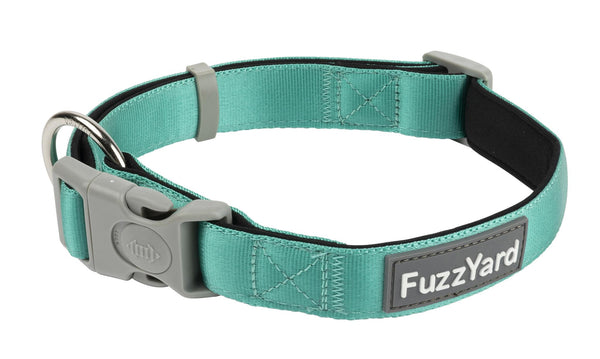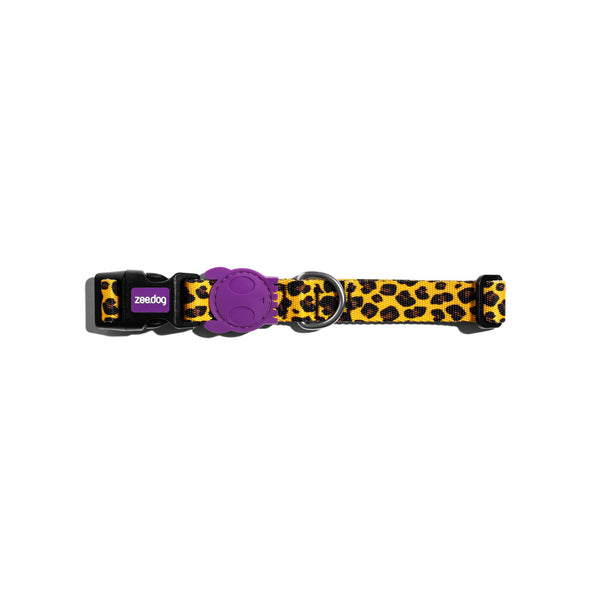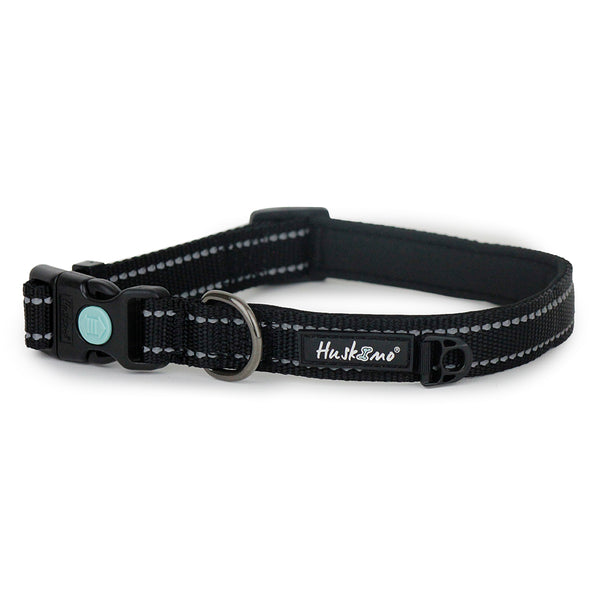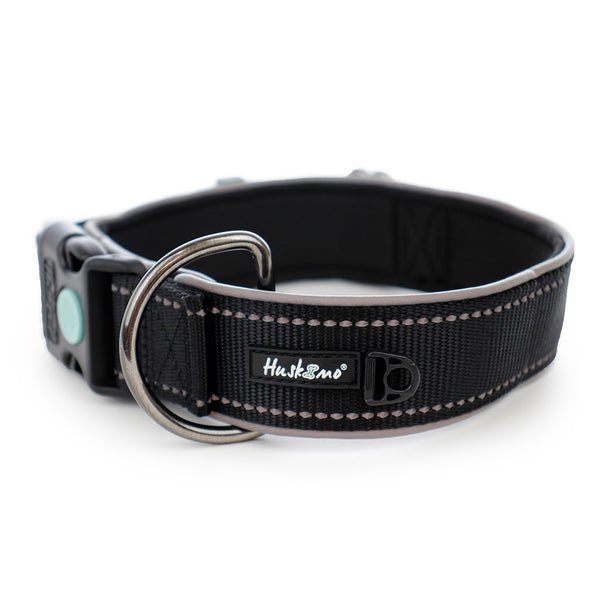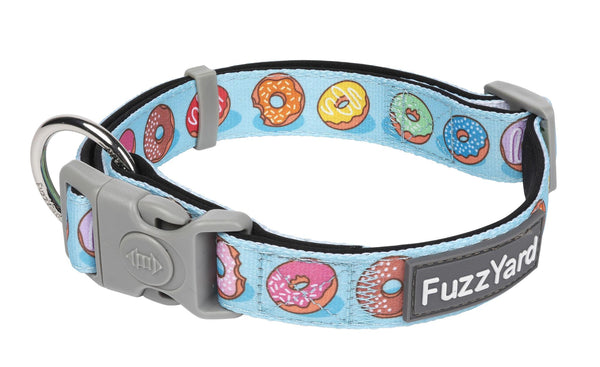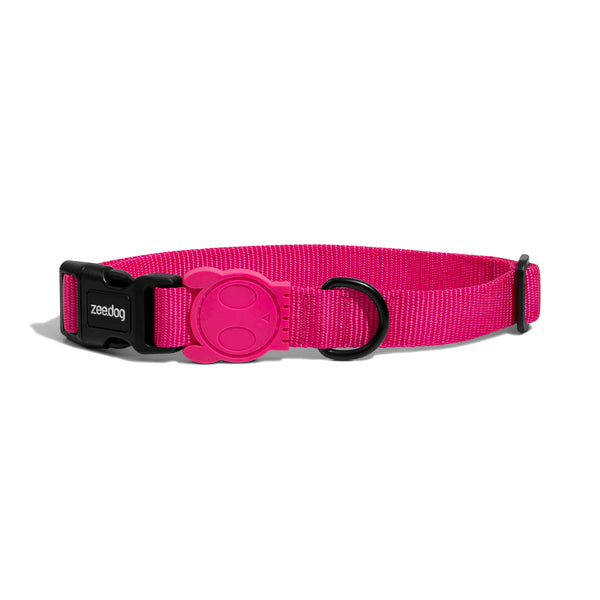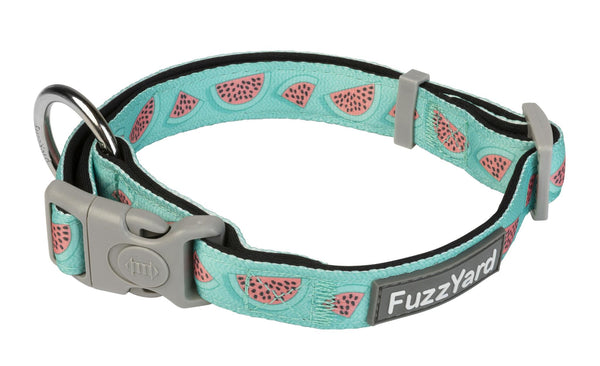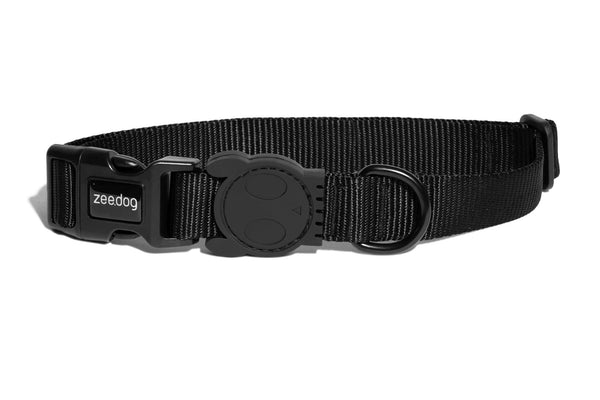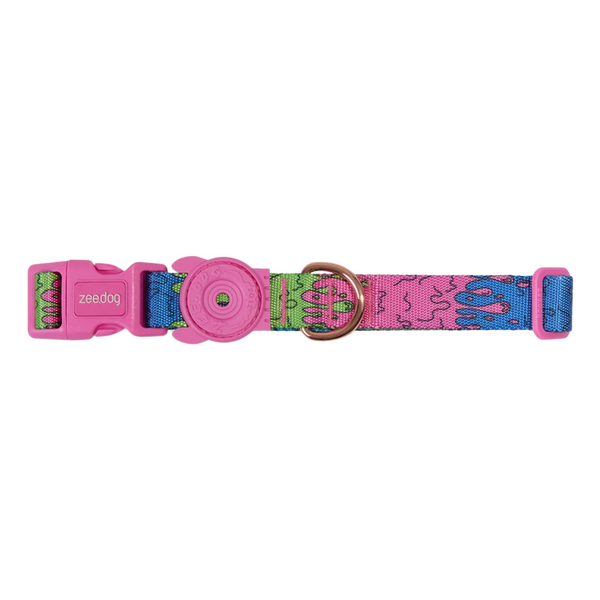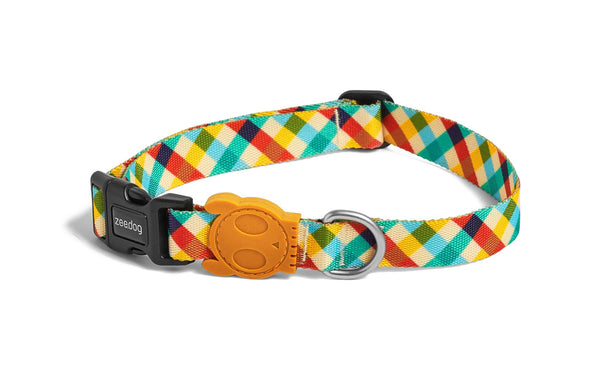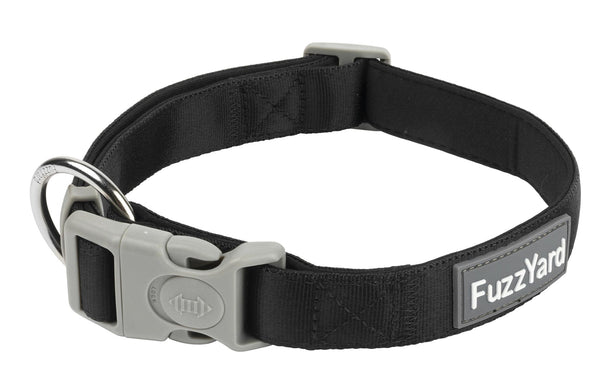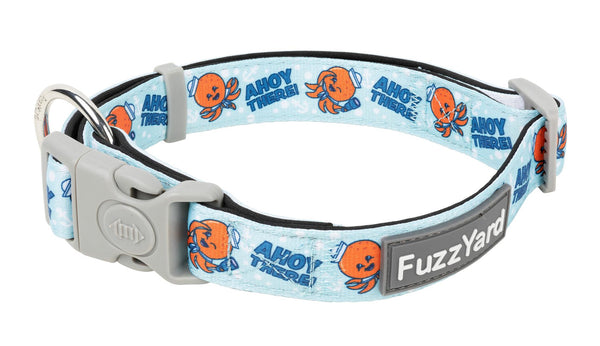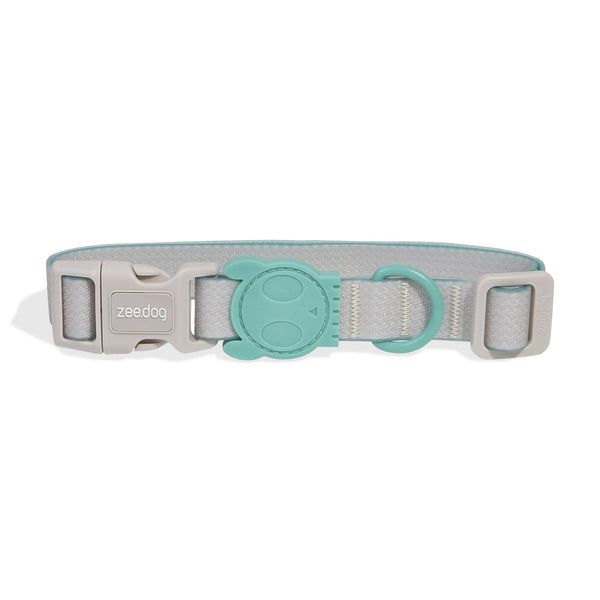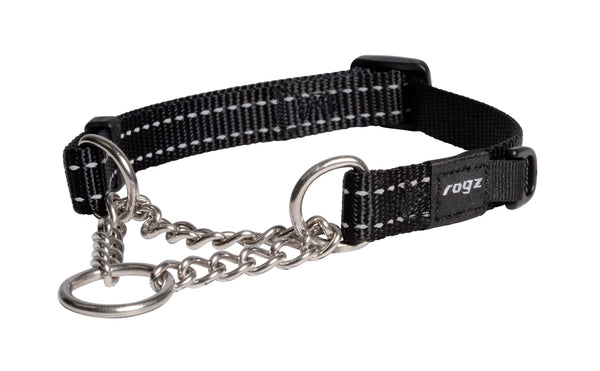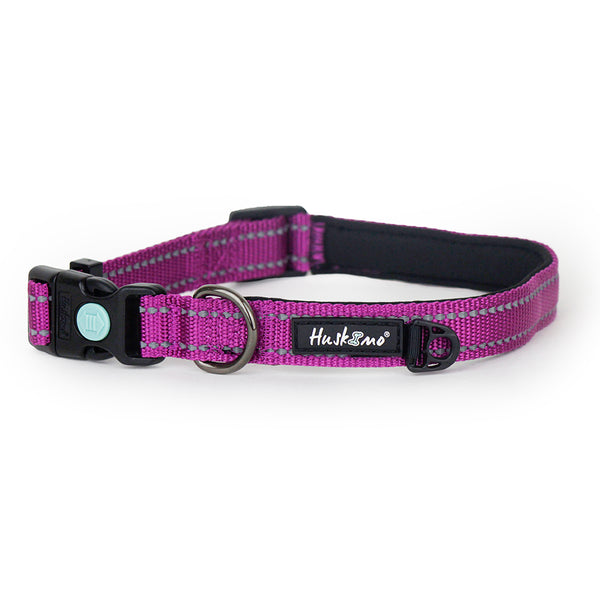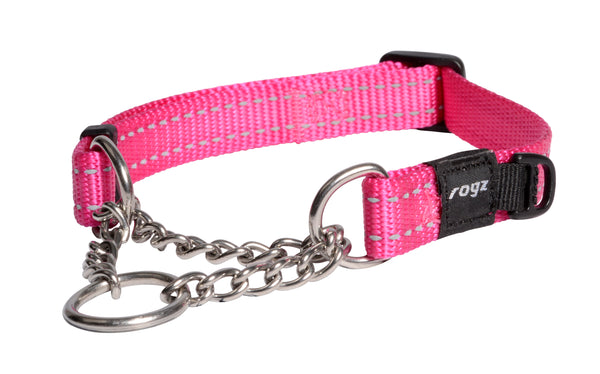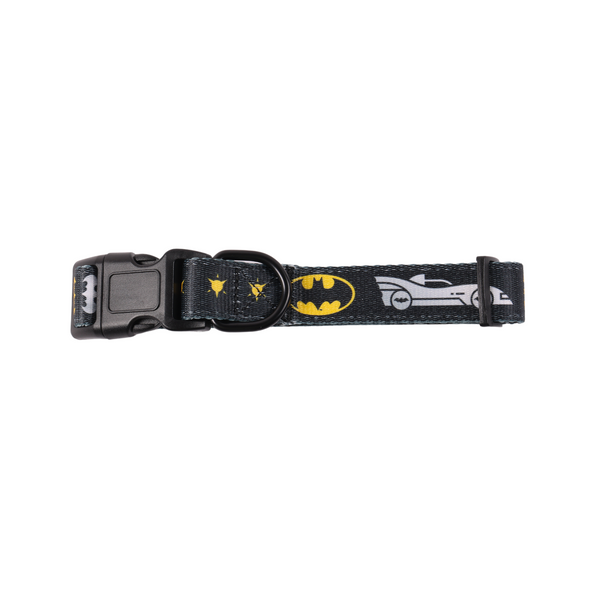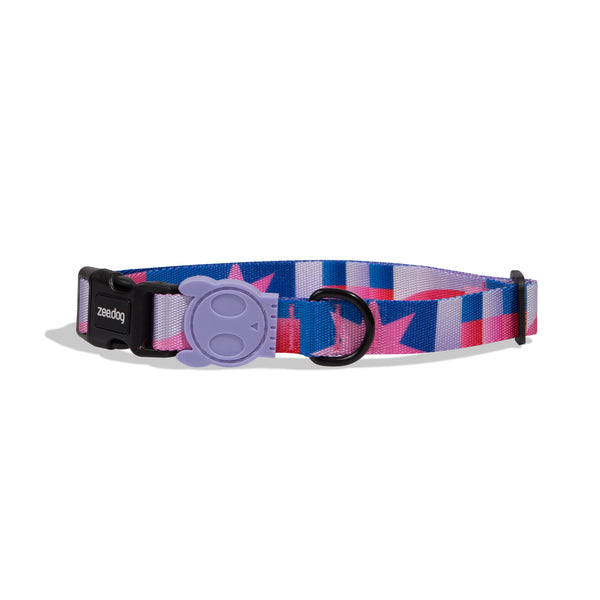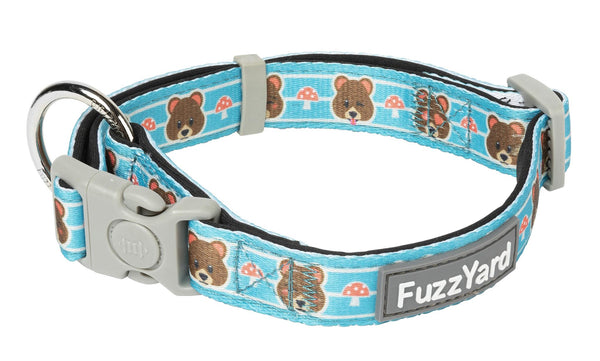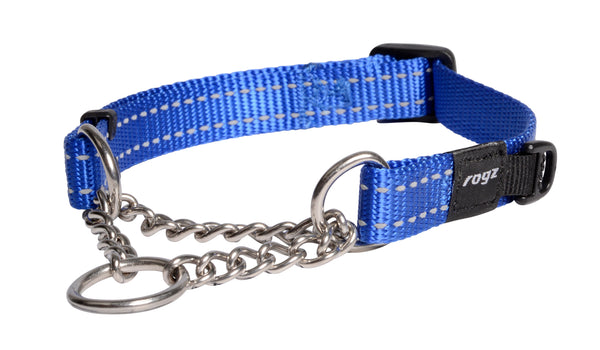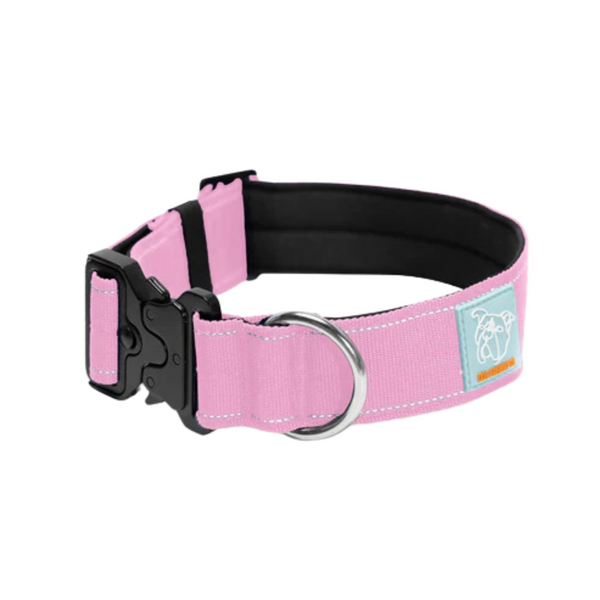Shop the Best Dog Collar Brands
Swaggle makes shopping dog collars easy with trusted pet brands including:
Dog Friendly Co.
FuzzYard
Halti
Huskimo
PetVerse
Rogz
Soapy Moose
Zee Dog
Refresh your dog’s look and get rewarded too. Earn flybuys when you schedule regular deliveries of stylish dog collars.
FAQs
What is the best type of dog collar for dogs?
The best dog collar really depends on your dog’s personality, size and walking habits. For most pups, a flat dog collar is a simple and reliable choice. It’s comfy, easy to attach ID tags to, and great for everyday use. If your dog has a knack for slipping out of collars, make sure it fits snugly, which means not too tight, not too loose. A secure and well-fitting dog pet collar keeps your mate safe while they’re out exploring.
Are dog collars uncomfortable for dogs to wear?
Not if they’re the right fit. Most dogs don’t notice their collar once they’re used to it. But if the collar is too tight, too loose, or made from rough material, it can rub or irritate their neck. A well-designed dog collar for dogs should sit comfortably without digging in or slipping around. Always check for signs of discomfort like scratching or red marks, and adjust if needed.
Should dogs wear collars at night?
It’s usually best to take your dog’s collar off at night, especially indoors. This gives their neck a chance to breathe and reduces the risk of it catching on blankets or furniture. But if your dog sleeps outside or tends to wander, keeping their dog collar on, with ID tags attached, can add extra peace of mind.
Is a harness better than a collar for walking a dog?
For dogs that pull, have respiratory issues, or are still in training, a dog harness is often the preferred alternative. It spreads pressure across the chest instead of the neck, which can be more comfortable and safer. YThat said, a dog collar is still great for holding tags and quick outings. Many pet parents use both—a harness for walks and a collar for ID.
Should my dog wear a collar all the time?
It’s fine to leave your dog’s collar on during the day, especially when out and about or at home with guests around. But at night, taking it off can help avoid irritation or accidents. A quick regular check of the fit helps ensure your dog collar stays comfortable as they grow or change shape.
Is it better to walk my dog using a collar or a harness?
If your pup walks nicely on lead, a standard dog collar might be all you need. But if your dog pulls or gets easily distracted, a harness gives better control without putting pressure on their neck. Some owners use both, depending on the day’s adventure. For help with training, you might also want to check out our dog training accessories to support good leash manners.
What is a prong collar and should I use one?
Prong collars are metal dog collars that tighten and pinch when a dog pulls. While some use them for training, they’re banned in states like Victoria, Queensland and Tasmania due to concerns over pain and injury. Most experts recommend avoiding prong collars and opting for kinder, more effective training tools instead.
Are dog shock collars legal in Australia?
Laws around shock collars vary by state, but many experts, including the RSPCA, strongly advise against using them. Whether it’s electric shocks, citronella spray or noise-based collars, these tools rely on punishment, which can stress or frighten your dog. Positive reinforcement, like treats and praise, is a much more humane and effective way to train. Your dog will thank you—with a wagging tail!
